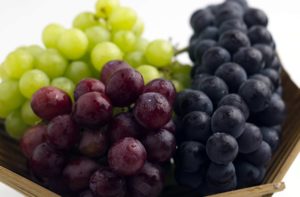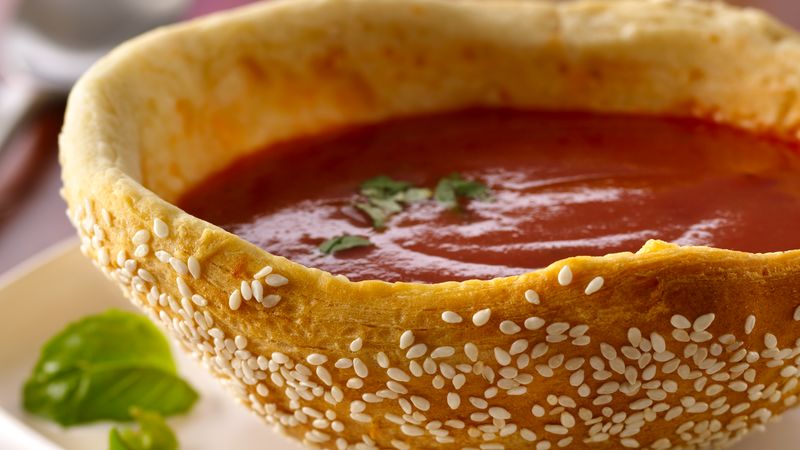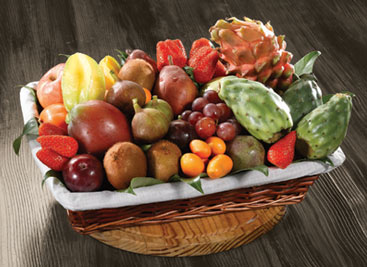Beitza 35a
1- We went further into the idea of שבת קובעת למעשר.

2- Our Gemara quotes a Mishnah concerning one who places a large amount of olives in an olive press. In general, the olives in the press are considered ‘unfinished’ since they are not meant to be eaten but to produce olive oil. So eating a few olives from the press would not require מעשר as it is a סעודת ארעי.

סעודת ארעי
Now, when lunchtime comes along, this fellow פרעסער dips his hand into the press and removes 10 olives to munch on. This large amount of olives creates a סעודת קבע requiring מעשר to be given.

סעודת קבע
However, according to Reb Eliezer, even if one takes out many olives, since the uneaten balance may be returned to the olive press, then all 10 olives are not considered סעודת קבע.

3- Further in the Gemara we find the case of one that is holding a cluster of grapes. This cluster is not חייב במעשר.
How is that? Rashi explains that ‘generally, a cluster of grapes is considered ‘unfinished’’. לא נגמרה מלאכתו

We discussed the meaning of this:
Was Rashi (who was a winemaker) referring specifically to wine grapes (only) that are usually not eaten?
Or perhaps he was referring to all types of grapes, including ‘table grapes’, and it’s just that eating habits have changed since his time. Perhaps centuries ago, grapes were generally not consumed as food but only processed into wine.

Table grapes were first planted in the USA in 1839.
Therefore grapes are considered ‘unfinished’ and not חייב במעשר until they turn into wine.

4- We spoke about ברכות that have changed in time. A prime example is the carrot.
The Alter Rebbe (11) writes that on raw carrots one makes שהכל since it is not the normal way to eat them! Most people eat carrots when they are cooked.


Carrots, the way they used to look…no one ate these uncooked.
When has this changed? Reb Zalman Shimon Dworkin (d. 1985) would say that one should indeed make שהכל on raw carrots.
5- We spoke about perhaps another change. When one washes on bread all the other ברכות on the food dishes that follow are not made.
Why?
‘Because these items such as fish and meat are usually not eaten without bread’. (4,1)

Thus, the ברכה המוציא, applies on the balance of the meal. However, deserts, such as cake, since one eats cake also outside of the meal, the המוציא does not apply to them.
Now let’s think….. Who eats fish with bread today? Soup maybe. Sometimes. But are fish and meat ‘usually eaten in a bread meal’?
In other words – is fish any different today, than say an apple, in regard to eating them with bread or in a bread meal?

6- We discussed that the Alter Rebbe wrote these הלכות in three places.
1- שולחן ערוך
2- לוח ברכת הנהנין
3- סדר ברכת הנהנין
See the language here his שולחן ערוך.
(177, 1)
א דברים הבאים בתוך הסעודה אם הם דברים הבאים מחמת הסעודה דהיינו דברים שדרך לקבוע סעודה עליהם בין ללפת בהם את הפתב כגון בשר ודגים וירקות וגבינה וביצים ומיני מלוחים בין למזון ולהשביע כגון כרוב ותרדין ודייסא וכל מעשה קדרה שאינן באין ללפת אלא לתבשיל ולמזון א”צ ברכה לפניהם אפילו אוכלם בלא פת שברכת המוציא פוטרתם ולא לאחריהם שברכת המזון פוטרתםי
(שכיון שאין דרכם לאכול אותם כל היום כמו הפירות אלא בשעת סעודה בלבד הרי הם טפלים לפת שהוא עיקר הסעודה ולכן נפטרים בברכת הפת אע”פ שאוכלם בלא פת ).
7- In connection to Birchas Hanehenin, this story was related:
Once a rabbi arrived in town for a “prubbe” to see if he was up to the task of becoming their Rav.
They placed a sumptuous plate of various fruit in front of him and waited to see which fruit he would choose first, thereby demonstrating his Halachic acumen.

When the the plate was brought before the rabbi, he blanched, unsure of which fruit to eat first. Turning to his hosts, he excused himself to use the facilities. Alone, he pulled out one of the above mentioned three sefarim struggling in vain to determine which fruit to eat first. Meanwhile, the townspeople proceeded to mix up and slice some of the fruit, thereby adding further layers of complexity to the question!
Finally the rabbi returned, believing he could pull it off.
Gazing upon the discombobulated plate of fruit again, his eyes fell and was stumped. Again he asks to be excused to use the facilities…..
Until his return the townspeople added and removed and sliced some of the fruits. The Rabbi returns once again and could not figure out what Brocho to make.
Another aged Talmid Chochom, realizing that this Rabbi was not up to par tells him: ” …פשפש ולא מצא “.
What did he mean with that? It was a classical ‘double entendre’. [a figure of speech or a particular way of wording that is devised to be understood in two ways,]
The Gemore says in Berochos (5,a)
אם רואה אדם שיסורין באין עליו יפשפש במעשיו שנא’ “נחפשה דרכינו ונחקורה ונשובה עד ה’ ”
פשפש ולא מצא יתלה בבטול תורה שנאמר “אשרי הגבר אשר תיסרנו יה ומתורתך תלמדנו”
When a person sees that he is afflicted with pain and wonders as to why he deserved to be punished from Above, he should first reflect on his actions . יפשפש במעשיו.
If he can’t find anything wrong in his way of life…… פשפש ולא מצא….. he should attribute his pain to his ביטול תורה.
So the old Talmid Chochom meant to say:
פשפש ולא מצא…… meaning that this ‘Rabbi did פשפש twice….. and still can’t figure out the proper ברכה… so one must attribute his lack of knowledge to his own ביטול תורה……..
פשפש ולא מצא יתלה בבטול תורה